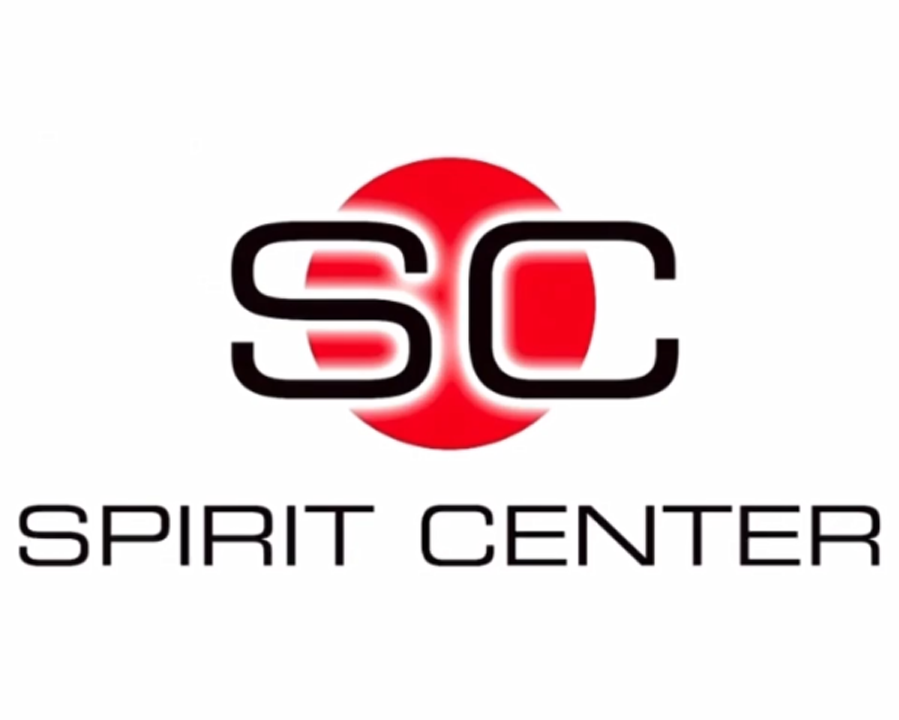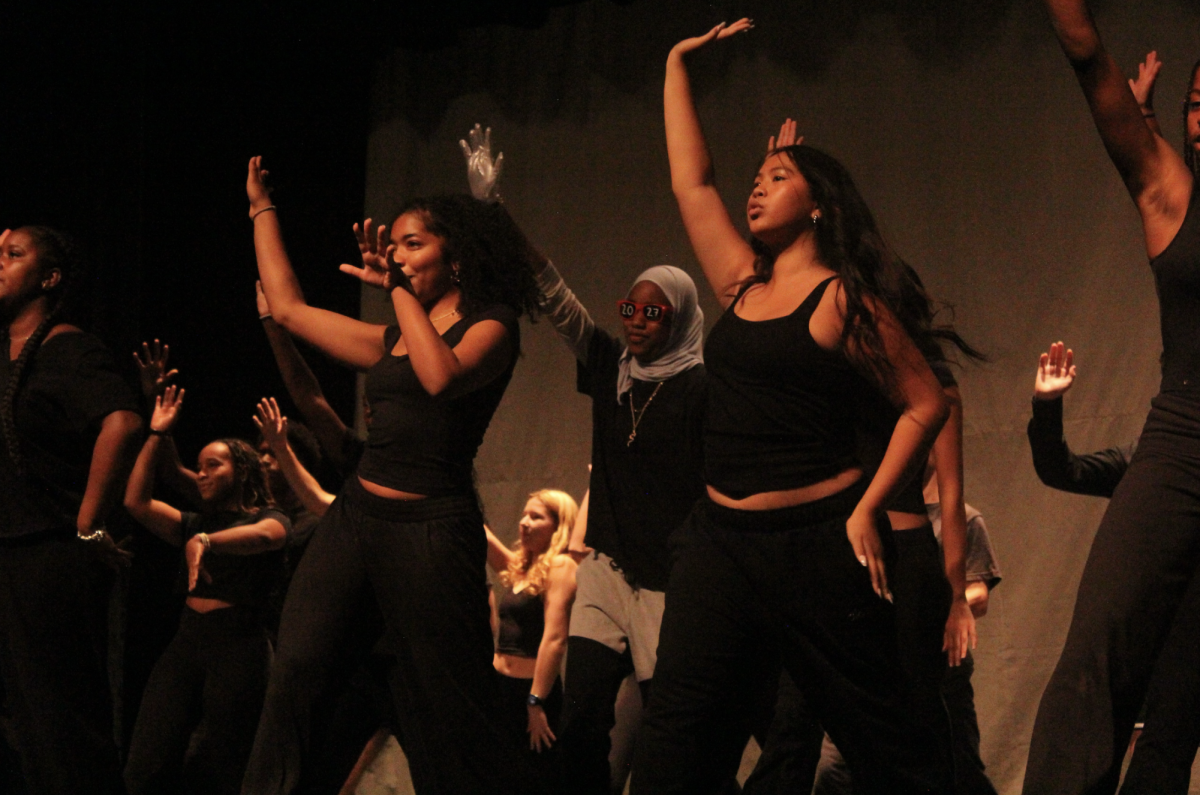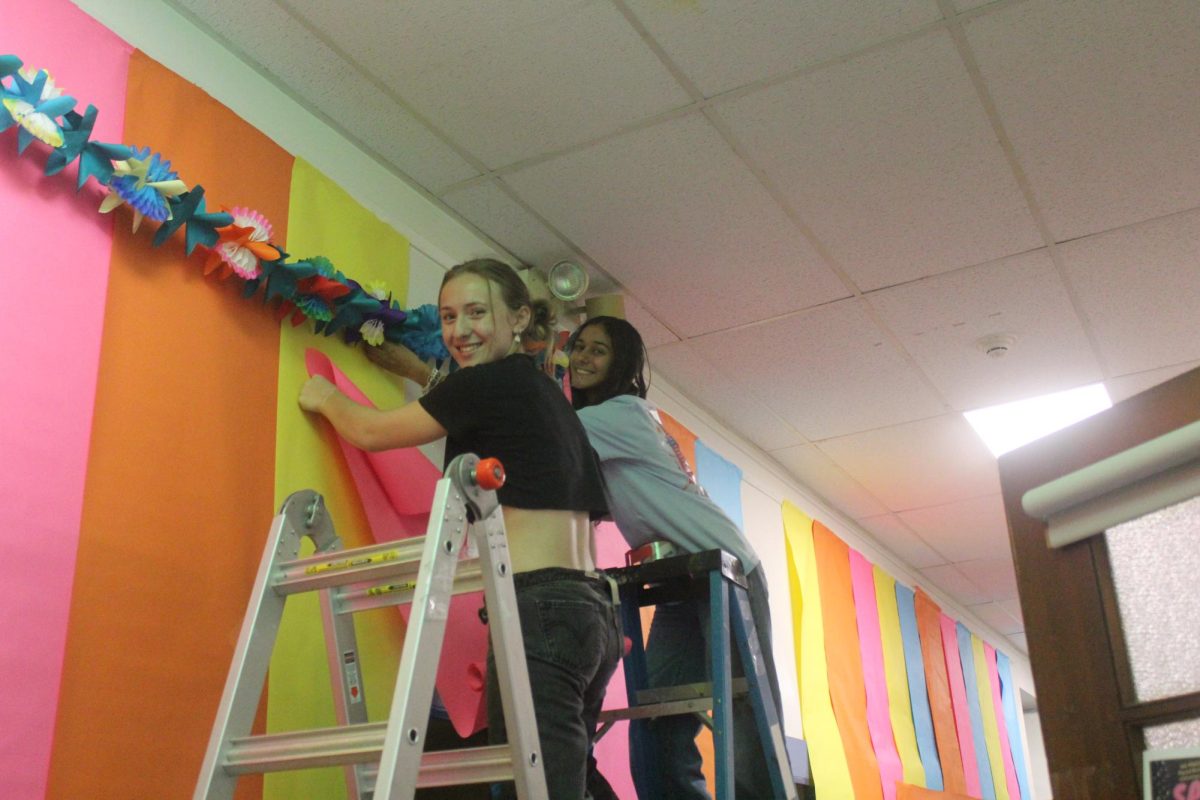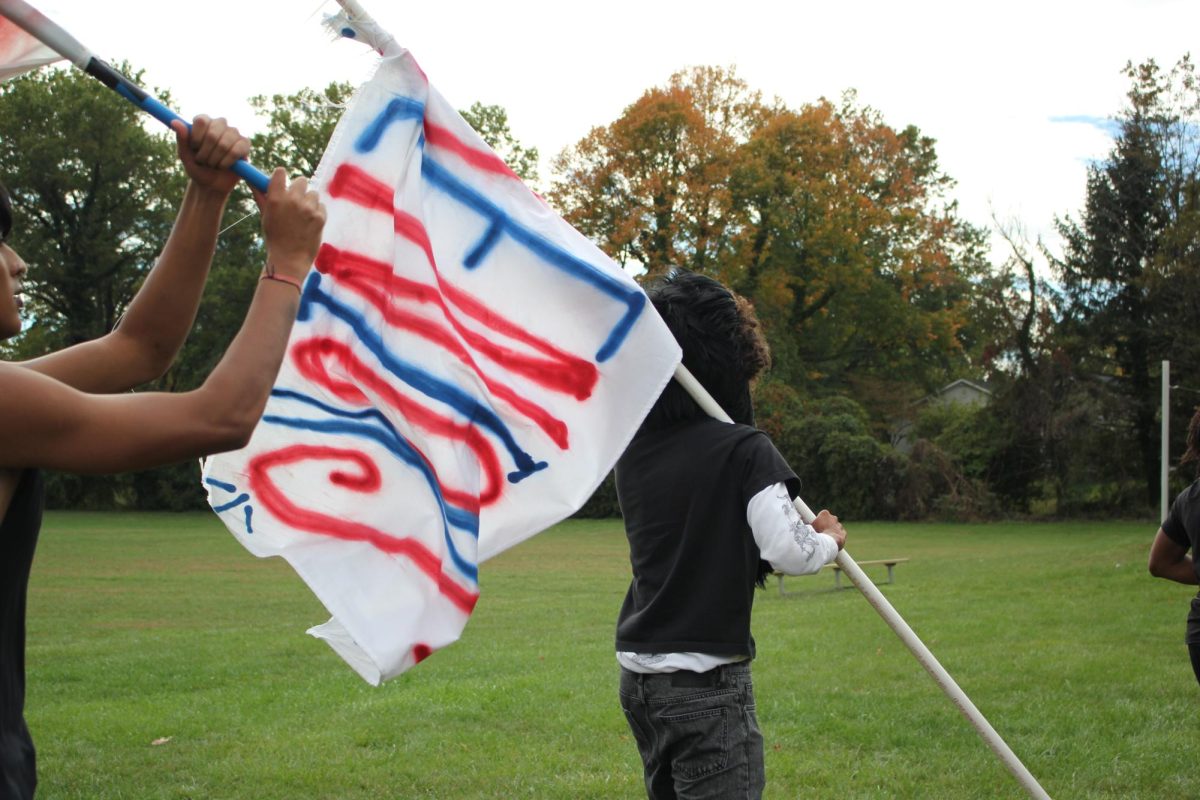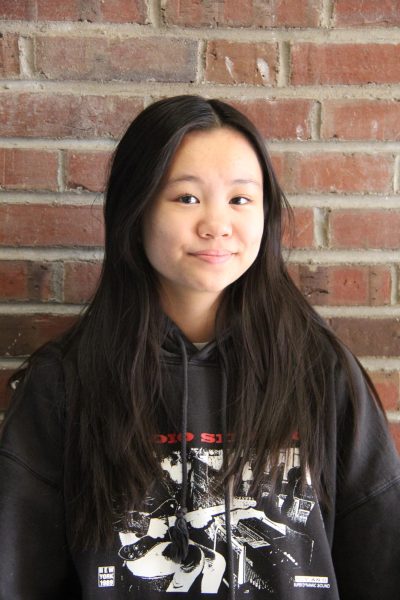Since the article’s original form on June 30, 2024, several quotes from sources were removed on April 15, 2025, at 12:08 PM due to concerns about their safety and well-being in light of recent current events. WordsWorth respects our credibility and trust with our audience by writing the objective truth, but we also understand that we must adapt to changing times. We have referenced the Student Media Alert by several national media organizations and have created a Takedown Policy that aligns with our values.
Additionally, this article was updated on July 1, 2024, at 11:16 PM to include quotes from US Director Noah Rachlin.
On May 24, MFS welcomed guest speaker Randi Boyette from the Anti-Defamation League (ADL) and Dan Sussman, US English Teacher, to present during US Assembly; both spoke about antisemitism through historical and modern lenses during a series of presentations, a Q&A period, and space after the assembly to continue the conversation with Boyette. The assembly brought a variety of student opinions regarding concerns with the ADL and MFS’ position and approach to the Israel-Palestine conflict.
Hosted in the Meeting House, the conversation covered topics including the origins of Judaism, defining and portraying antisemitism, as well as relating antisemitism to responses to the conflict in Gaza. The objective of the assembly was to educate about antisemitism, according to Sussman.

Sussman explained that the original idea for the assembly began last year, before Hamas’ attacks on October 7, when he brought it up during a US Jewish Student Union (JSU) meeting.
Initially, the assembly was supposed to focus purely on antisemitism and its history. However, following the events of October 7, the presentation was adapted to “acknowledge reality” and connect it to a larger conversation about the Israel-Palestine conflict, according to US Director Noah Rachlin.
Some students appreciated having the assembly teach the history of Judaism and antisemitism.
Chloe Marshall ’26 stated that as someone who has “struggled with putting into words how [she] wanted to support Palestinian people but also [feels] the effects of antisemitism,” she also appreciated the talk.
Sussman said he believed the assembly was successful.
“We met a need for the community because we got people talking … [students had] curiosity and a hunger for discussion,” Sussman explained.
Some students stayed after the assembly to talk and ask questions of Boyette and other teachers, as well as participate in a discussion during lunch with teachers and students about handling the Israel-Palestine conflict as a school. Sussman regarded the discussions and questions during and after the talk as “most important” to him because of the “meaningful, interesting questions” students asked.
The ADL had recent controversies as it has “long aligned itself with pro-Israel goals,” including publicly condemning Norway, Ireland, and Spain for recognizing Palestine as a state, and ADL CEO Jonathan Greenblatt lobbying nearly $1.6 million in 2024 to promote controversial definitions of antisemitism.
When asked about the concerns with the ADL, Sussman echoed US Director Noah Rachlin and Director of Diversity, Community, and Belonging Chanelle Walker’s framing in an announcement prefacing the assembly. They acknowledged that the situation is “complicated by the context of the aftermath of October 7th and the ADL as an organization,” according to Walker.

“If you bring someone in because of their certain expertise in an area and then that paid off because of their expertise,” Sussman said, “I think that’s a win.”
Sussman continued, “You don’t need to agree with an organization or an individual on every issue in order to learn something.”
Although the objective of the assembly was to spread awareness about antisemitism, some students’ reactions were focused more on the Israel-Palestine conflict, particularly on MFS’ statement on the issue, stated in a schoolwide email.
On October 10, a schoolwide email titled “Caring for Our Community” was sent to acknowledge the conflict in Gaza and provide support for members of the community impacted by it. The email stated MFS’ decision to lean into Quaker values, especially the Peace testimony, when addressing the issue.

The May 24 assembly was one of the few occurrences in which MFS discussed and hosted space to talk about the conflict in the Middle East. Besides the assembly, space was made to discuss the issue during a special JSU meeting on October 10 for Jewish-identifying students as well as a Diversity Committee meeting on November 1 for any student to share opinions on the issue.
The assembly speakers acknowledged that it is impossible to look at current-day antisemitism while ignoring the impacts of the Israel-Palestine conflict. Therefore, the assembly posed the question: Is it possible to criticize Israel without being antisemitic?
The answer to this question is yes, Rachlin said during his preface to the assembly.
When being interviewed, Walker claimed that the “polarizing and divisive climate … where everything is black and white” can lead to opposition as people are pressured to choose sides. She stated that the answer is not to pick a side, but to focus on people’s “shared sense of humanity.”
Hours of preparation went into deciding how to approach the assembly, and especially into ensuring that the audience understood that this assembly was not a “pro-Israeli” assembly, but an “anti-antisemitism” assembly, according to Sussman.
Zaydan Lalani ’26 agreed with the school’s neutrality on the subject, saying that “as an education institution with such a diverse student body, it makes sense not to pick a side.”
After the assembly, students were left with many questions regarding the school’s stance on the Israel-Palestinian conflict overall.
Some students had mixed interpretations of the school’s stance on the topic. Kyle Meriwether ’26 said, “Based on the assembly, [the school was] pushing a pro-Israel agenda [even if] they may not be trying to.”
Additionally, students have been hesitant to share their opinions about the Israel-Palestine conflict at school. WordsWorth reached out to a variety of students from numerous backgrounds, but many didn’t feel comfortable sharing their opinions because of the controversy surrounding the topic.
Next year’s JSU co-facilitator Ethan Cohen ’26 interpreted the framing announcement by Rachlin as a “trigger warning before students learned how antisemitism is a bad thing.” He said it seemed like the school was “scared” to have the assembly.
Sussman explained the school’s strategy for handling the conflict during the assembly: “We need to be careful when talking about this issue, but care is not silence.”
Marshall stated that the school in the past “overcompensated for how intense this conversation can be … overcompensating by just not talking about it.”
With the few chances students have had to discuss the Israel-Palestine conflict at the November 1 Diversity Committee and after the assembly, the wish for follow-up conversations was prevalent from the student body and faculty.
Sussman shared, “I wish this presentation happened earlier in the year; I wish it was one in a series of presentations about different aspects of this issue.”
The administration has taken into account the feedback to have an assembly focused explicitly on Islamaphobia as they plan next year’s calendar, according to Rachlin.
Some students believed the special Diversity meeting on November 11 was unsuccessful. Maymouna Banks ’27 said, “[The meeting] didn’t really get anywhere.”
According to Marshall, the lack of follow-up to the Diversity Meeting from the administration created a climate where students didn’t have space to share their opinions.
Additionally, Marshall believed that the student government clerks should not have been in the position to facilitate a conversation right after the events of October 7 because it put them in an “uncomfortable situation.” She said that it was “too much responsibility on the entire community for them as students.”
Banks said, “Instead of students actively continuing to say what they want to be represented in the school for diversity, teachers and adults that lead diversity should initiate that instead.”
Although this assembly was brought forth and planned by adults, many identity-based assemblies and Community Times, as well as recognition from the community through Meeting for Worship or on the Student Life calendar, are dependent on student initiative.

